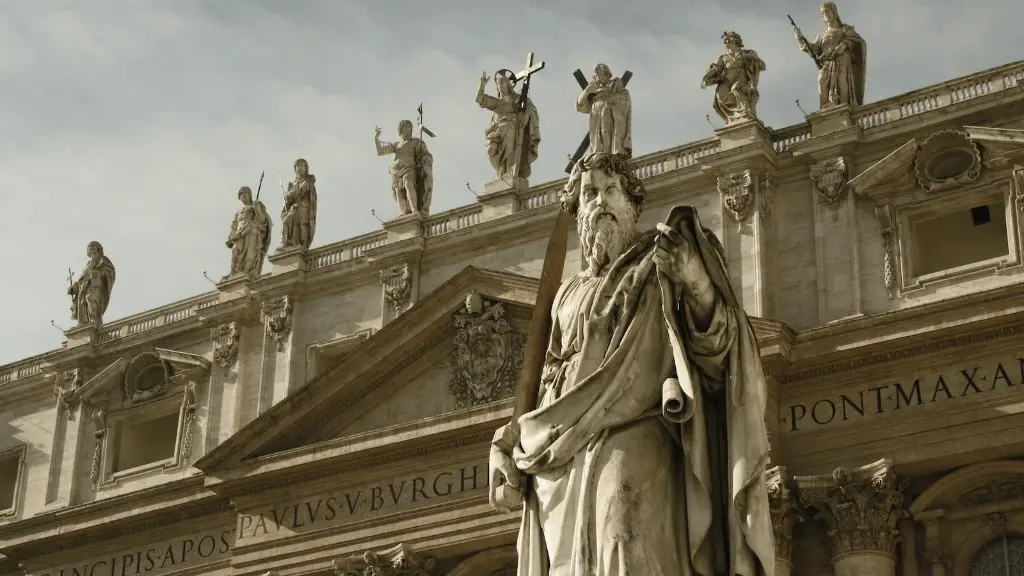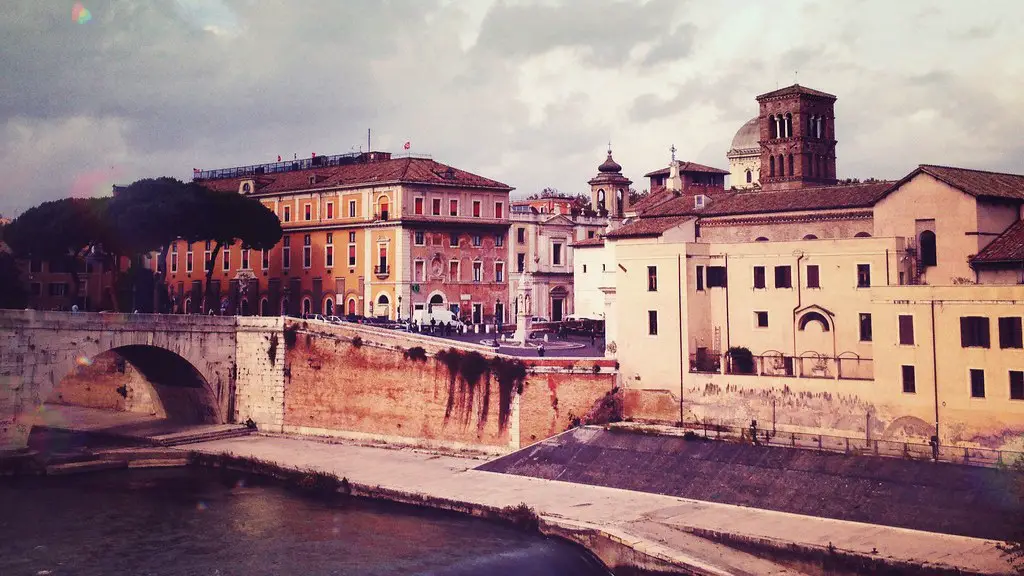Language and Writing
Kids in Ancient Rome were not only taught how to read and write, but also how to speak Latin. Education was highly valued in Roman society, and all Roman boys from wealthy families were taught how to read and write in Latin. Girls could learn these skills too, but were not given the same level of formal education. Latin was the language of literature, law and science, so it was important that everyone could understand it. Reading and writing were taught using a wax tablet, which was a small block of wood with a thin layer of wax covering it. The students would then use a stylus to write on the wax.
The majority of writing was done by Romans on papyrus scrolls. Students would be taught how to write letters, decrees and emperors’ edicts using official Roman script. Grammar was also important, with students learning the rules of syntax, verb tenses and conjugation. They were also taught how to form strong arguments and how to spell words correctly.
Mathematics and Geography
Kids in Ancient Rome were also taught mathematics and geography. Mathematics was essential for running businesses, trading goods and dealing with finances, which was an important part of Roman life. Mathematics lessons would cover topics such as addition, subtraction, multiplication and division. Roman numerals were also taught, which helped in more advanced calculations. Geography was important for understanding the layout of the empire and for teaching students about the neighbouring countries that were part of the empire. The geography lessons included learning about the world, the continents and oceans, as well as the maps and topography of Ancient Rome. Some of the more advanced concepts such as astrology and land formation were also discussed.
Sports and Games
Sports and games were also part of the education system in Ancient Rome. Sports such as running, boxing, wrestling and javelin throwing were popular and widely practiced. Roman children were taught how to compete in these sports, as well as how to be good sportsman. Games were also popular, with a variety of board games being played.
The most popular game amongst the Romans was Latrunculi, which was a Roman version of Chess. This game is thought to have been played since the 2nd century BC, and was popular amongst the Roman upper classes. It is believed to have been played by Julius Caesar, and Emperor Claudius was known to have been a fan of the game. Kids in Ancient Rome were taught how to play Latrunculi, as well as other board and dice games.
Religion and Ethics
Religion and ethics were also key aspects of the Ancient Roman education system. In Ancient Rome, religion was a public affair and gods had to be respected at all times. Roman children were taught about the gods, goddesses and the religions of their ancestors. They were also taught about ethics and morality, the importance of respecting their elders, the virtues of courage and loyalty, and the values of friendship and family.
Music and Art
Kids in Ancient Rome were also taught music and art. Music was usually taught as an accompaniment to poetry, as music and poetry were closely linked in Roman culture. Roman children would learn about classical music and the instruments used to create it. They would also learn to play instruments such as the lyre, flute and trumpet. Art was also a part of the Ancient Roman curriculum. Roman children were taught about painting, sculpting and pottery making.
The Classical era of Greek art was highly influential on Roman art and culture. Roman children were taught about the sculptures, statues and paintings of Ancient Greece, and how they influenced Roman art and architecture.
History and Politics
History and politics were also taught in Ancient Rome. Roman children were taught about the history of the Roman Empire, and why it was important to the survival of the Republic. They were taught about the political systems, the occupations and the laws. Roman children were also taught the importance of respecting Roman law, and the importance of loyalty to their country.
Poetry and Oratory
Roman children were also taught about poetry and oratory. Poetry was a popular form of entertainment and expression in Ancient Rome, and Roman children were taught to recite poetry and compose their own poems. Oratory was also important, as it was a popular club activity amongst Roman citizens. Roman children were taught to think and argue logically and persuasively, as well as how to present their ideas in an eloquent manner.
Military and Strategy
Roman boys were also taught a variety of military and strategic skills. This included how to form and lead a militia and how to plan for battle. They were taught how to defend and attack, how to move forces and how to use siege weapons. Boys were also taught about military and political strategies, both for defensive and offensive purposes. This also included learning tactics such as formation and ambush.
Law and Medicine
In addition to the topics listed above, Roman boys were also taught law and medicine. Law was important in Roman society, and Roman boys were taught the basics of Roman law. This included the rights of the citizens and the punishments that could be handed out for breaking the law. Medicine was also taught, with Roman boys learning about the science of healing and the importance of hygiene. They were also taught basic treatments for common ailments. These lessons would have been conducted with the help of a doctor or medical expert.
Conclusion
Education was highly valued in Ancient Rome and children were taught a wide variety of skills. These skills were essential for running businesses, understanding the law, and keeping the empire safe. In addition to the traditional subjects of maths and reading, Roman children were also taught political strategy, military tactics and medicine. This broad education provided Roman children with the tools necessary to be successful citizens of the Roman Empire.


